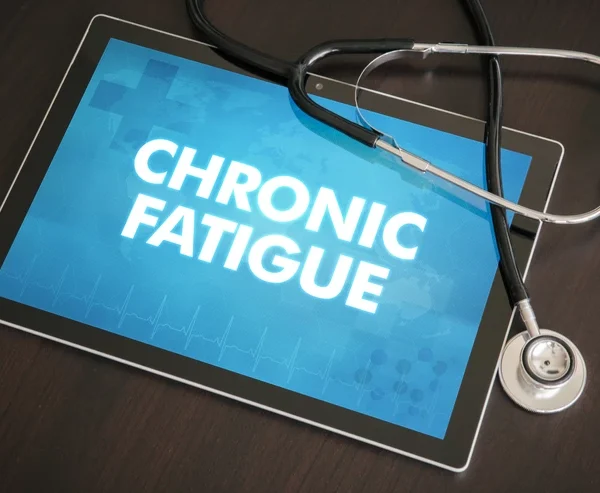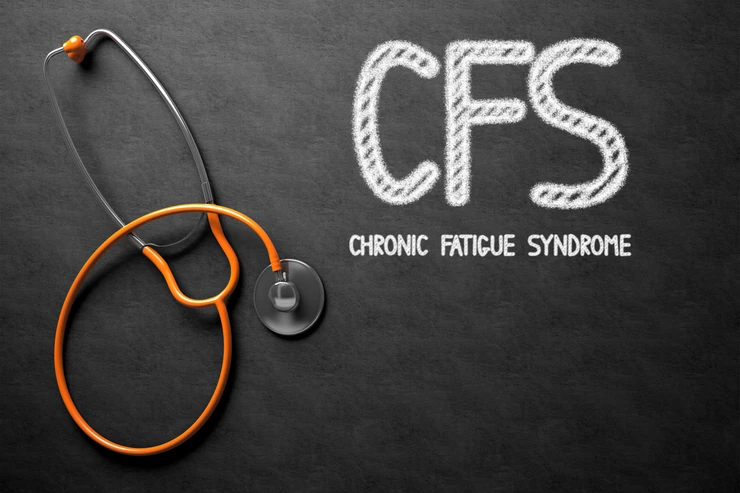Living with Chronic Fatigue Syndrome (CFS)
Chronic fatigue syndrome (CFS), also known as Myalgic encephalomyelitis, is a complicated, serious, and long-term condition that involves many different body systems. It is a complex disorder characterized by extreme fatigue lasting at least six months, which cannot be explained entirely by an underlying medical condition. Individuals suffering from CFS are often unable to do their daily activities, and sometimes, they are confined to their beds. The fatigue gets worse with mental or physical activity but doesn’t get better with rest.
Other characteristics include:
- Sleep that is not refreshing. Even after a full night’s sleep, you still feel tired and worn out
- Difficulties with concentration, memory, and focus
- Feeling dizziness that increases when you go from sitting or laying down to standing up
- Extreme fatigue
- Stuffy nose and sore throat
- Headaches
- Enlarged lymph nodes in your armpits or neck
- Unexplained joint or muscle pain
Causes of CFS
The root cause of CFS is to this day unknown. Some individuals may be born predisposed for CFS, triggered by a combination of elements, such as:
Triggers include:
- Brain fog
- Viral infections. Some individuals are diagnosed with CFS after suffering a viral infection
- Digestive issues, such as irritable bowel syndrome
- Night sweats and chills
- Allergies and sensitivities to foods, light, noise, odors, or chemicals
- Muscle weakness
- Shortness of breath
- Irregular heartbeat
- Immune system problems. Studies have indicated that some people with CFS seem to have a slightly impaired immune system. Still, the results are unclear if there is a direct association between this impairment and CFS development.
- Hormonal imbalances. Some with CFS experience hormonal imbalances.
- Sleep problems. People with CFS may have problems falling asleep or staying asleep and not feeling refreshed, even after a full night of sleep.
- ME/CFS Emotional or physical trauma or PTSD. Some reports have identified an association between physical or emotional trauma, such as surgery or losing a loved one just before the onset of their CFS.
CFS Risk factors
- Age. CFS usually affects young to middle-aged adults, but it can occur at any age.
- Gender. Women are diagnosed with CFS more than men, but it may be that men are less likely to report their symptoms to a doctor.

CFS Complications
- Lifestyle restrictions
- Increased absences at work
- Depression
- Social isolation
Your doctor should be able to diagnose CFS by doing a complete medical exam. This includes obtaining an entire health history, current illnesses or ailments, and asking how often and what specific symptoms. It is essential to explain to your doctor how the symptoms impact your life, how long you have been experiencing the symptoms, and the severity.
What is Post-exertional Malaise (PEM)?
Post-exertional malaise (PEM) occurs when symptoms of CFS worsen even after minor emotional, mental, or physical activity. The CFS problem amplifies 12 – 48 hours after the activity and can last from days to weeks. Sometimes sensory overload can bring on PEM, such as bright lights or loud noise.
“Push-and-crash” cycles happen when a person with CFS has a decent day and tries to push and get more done than they usually can. They do too much, crash, rest, feel a bit better, and decide to push too much again, creating a cycle.
What Can I Do About PEM?
Managing your activities with a technique called pacing addresses the complications of PEM. The goal of the pacing exercise is to learn to balance activity and rest to prevent flare-ups of PEM. To practice pacing, you need to know your physical and mental limits. Keep a diary of your activities and symptoms. Then plan your activity and your rest to stay within these limits.

Living with chronic fatigue syndrome (CFS) can make everyday activities such as brushing your teeth or grocery shopping very difficult. Practicing mindfulness with your limits can help you to cope with your CFS. It will help you find the right balance between rest and activity best suited for you. Simple things can bring on a CFS Crash. Do your best not to push yourself when you have a good day. Keep your pace! It isn’t always possible to avoid some activities, but monitoring them and marking your symptoms can help you prevent a crash.
Chronic Fatigue specialists in rehabilitation or exercise may be able to help you cope and adjust to life with CFS. Finding easier ways to complete activities, like using a shower chair, sitting down to fold laundry, taking frequent breaks, and dividing big tasks into several smaller tasks can help.
Some people suffering from CFS find using heart rate monitors helpful in keeping track of how much you are exerting yourself to prevent a PEM crash. CFS is unpredictable, and PEM doesn’t always hit right after exerting yourself, so you need to tailor your own pace. Unfortunately, exercise is not a CFS cure.
Exercise plans must be carefully designed. People with CFS do not tolerate vigorous exercise and may even worsen the condition. However, creating a plan suited to your condition is essential for a CFS treatment protocol.
Sleep and CFS
Sleeping well is essential to everyone, including those with CFS. Individuals with CFS often feel less restored and refreshed after sleep than before they had CFS. Common complaints are trouble falling and staying asleep, vivid and intense dreams, muscle spasms, and overtiredness. If all else fails, your doctor may prescribe medicine to help you sleep. Most prescription sleeping agents have the potential for dependency, so taking the smallest dose for the shortest period is highly recommended. You may also try over-the-counter (OTC) sleeping medicines.

Some individuals still feel unrested even when the medications help them sleep through the night. That is one of the unfortunate complications of having CFS. If this sounds like you, consult a sleep specialist.
Pain and CFS
Individuals suffering from CFS commonly experience deep pain in their joints and muscles and tension headaches…even their skin feels sore when touched. Seeking a pain specialist is often necessary for those diagnosed with CFS. OTC pain relievers are recommended initially, such as Ibuprofen, Tylenol, and other NSAIDs. Chronic pain sufferers should seek counseling for pain management, toxic shame, depression, and stress management. You can learn different ways to cope with pain through counseling, like special stretching and movement therapies, heat, gentle massage, and aqua therapy for healing. Acupuncture by a licensed practitioner has been reported to help some CFS patients.
CFS and Anxiety, Depression, and Stress
Adjusting to a debilitating, chronic condition often leads to mental health issues, including anxiety, stress, and depression. Counseling can help with these specific issues and medication; however, mental health treatments are not a cure for CFS.
If you suffer from CFS and mental health issues, seek a mental health specialist. Some prescribed medications that treat anxiety and depression may be contraindicated for someone with CFS due to side effects. Muscle relaxation, deep breathing exercise, stretching, tai chi, yoga, and massage can help to reduce anxiety and stress and promote a better sense of well-being.
CFS Concentration and Memory Problems
Concentration and memory problems are issues for anyone suffering chronic pain or chronic fatigue. Some physicians have prescribed stimulants for CFS with impaired concentration, but reports say it could potentially cause a crash from the medication. Calendars, to-do lists, and organizers are helpful memory aids.

CFS and Dizziness and Lightheadedness
Some suffering from CFS may also experience lightheadedness and dizziness sitting upright or standing. These symptoms include:
- Frequent lightheadedness and dizziness
- Vision changes, such as seeing spots and blurred vision.
- Weakness
- Feeling like your heart is fluttering, skipping a beat, or pounding or beating too fast.
**If you are experiencing these symptoms, immediately report to your doctor to rule out any cardiac issues**
The Importance of Feeling Understood
Dealing with CFS and any other chronic illness is already an isolating and lonely experience, and not being understood only worsens those feelings. Even worse is when people in the medical field and others who have prime roles in your health and wellness don’t understand you, it can impact the quality of care.
Remember the old saying, “Don’t judge a book by its cover”? People living with CFS may look okay, but they are not. It can be very embarrassing to get yelled at for parking in a handicapped space because you may not look disabled, but people don’t realize how difficult it may be to walk up to the store and then have to shop. It can be tough not to take it personally, but it is important to remember that you are doing the best you can, and it doesn’t matter what someone else thinks, anyway. There is no easy answer for how to live with Chronic Fatigue Syndrome, but hopefully, the suggestions explained in this article will help.


